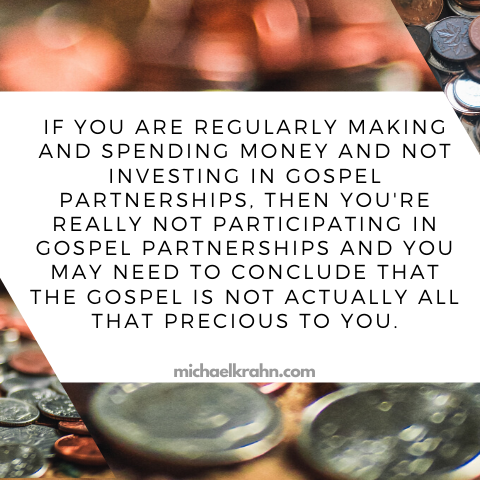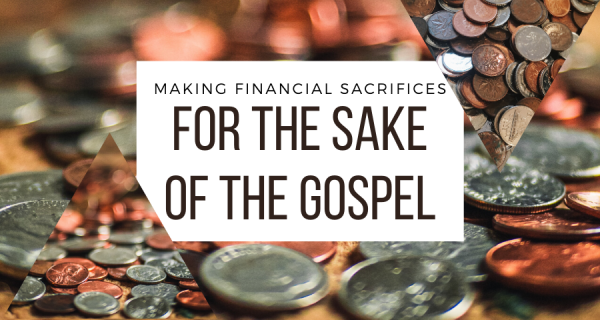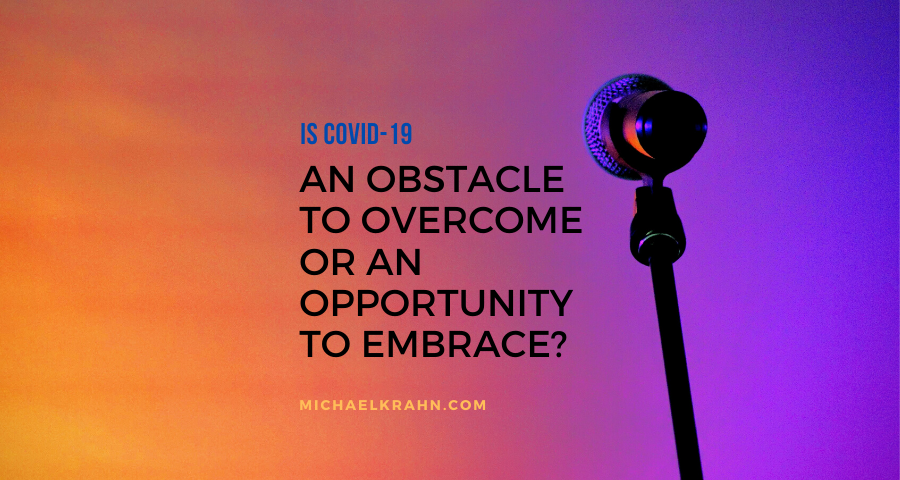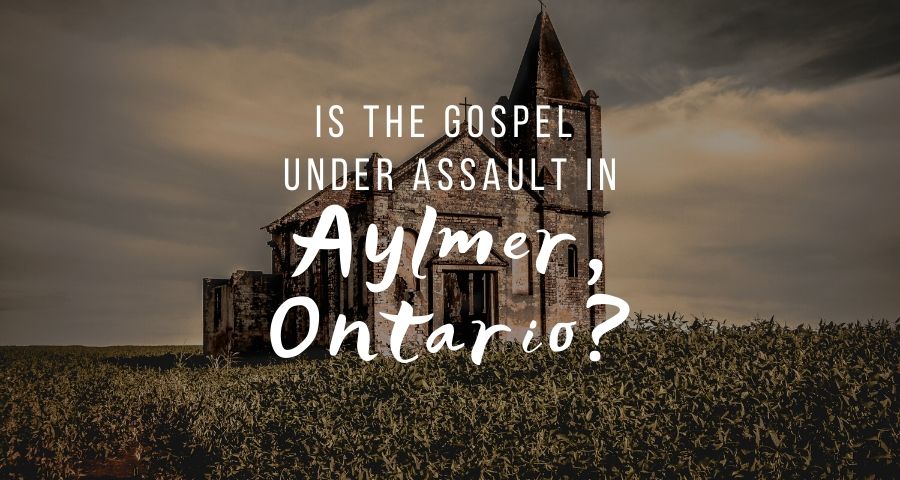If you are regularly making and spending money and not investing in gospel partnerships, then you’re really not participating in gospel partnerships and you might need to conclude that the gospel is not actually all that precious to you.
If you are regularly making and spending money and not investing in gospel partnerships, then you’re really not participating in gospel partnerships and you may need to conclude that the gospel is not actually all that precious to you.
Extreme Poverty Overflowing in a Wealth of Generosity
Paul writes to the church in Corinth describing the Philippian church’s passion for the gospel and their eagerness to be in a gospel partnership with him:
“We want you to know, brothers, about the grace of God that has been given among the churches of Macedonia, for in a severe test of affliction, their abundance of joy and their extreme poverty have overflowed in a wealth of generosity on their part. For they gave according to their means, as I can testify, and beyond their means, of their own accord, begging us earnestly for the favour of taking part in the relief of the saints…” (2 Cor. 8:1-4)
The people in Philippi didn’t have a lot of extra money lying around. There weren’t surplus funds they were looking to give away as a blessing to the less fortunate. They were the less fortunate, and yet they still possessed a desire and a compulsion to joyfully give to others. Of this ethos among the Philippian Christians, Ralph Martin says this: “We today might take the lesson to heart that the sign of our professed love for the gospel is the measure of sacrifice we are prepared to make in order to help it progress.“
Get Specific
Let’s press ourselves on that idea. What sacrifices – specifically, financial sacrifices – are we willing to make because of our love for the gospel and our desire to see it go out into all the world?
Now, you should never feel an obligation to give to any ministry that doesn’t have the progress of the gospel as its core mission. With that said, let me ask you this: Should you find a ministry worthy of your financial contributions, especially if those contributions would come as a considerable sacrifice to you, what is the measure of the sacrifice you’re prepared to make? In concrete financial terms, what is the sacrifice?
Let’s go beyond the theoretical. If I ask you this as a statement with a blank space at the end, what goes in the blank?
“You know, if I didn’t give so much to gospel ministry partnerships, I could __________________.” What is it?
Take one more resort vacation each year?
Afford a bigger house?
Drive a much newer vehicle?
What is it for you?
The Last Can in the Cupboard
And then once you’ve done that calculation, realize that for most of us we’re still only talking about how much we give out of our excess, not out of our poverty as the church in Philippi was doing. For most of us, we’re still talking about skimming some of the extra cream, where they were giving of the last cans in the cupboard.
But once you’ve done the calculation, once you see on paper how much more money you could have for yourself, how much you could have had over the last 10-15-20+ years that you’ve been faithfully giving, I hope that you can say this: “I will gladly go without these luxuries in order to support the progress of the gospel!”
Now, on the other hand, if your statement goes something like this: “You know, if we didn’t give so much to gospel ministry partnerships, we could… buy an extra bag of chips…” In other words, if you are regularly making and spending money and not investing in gospel partnerships, then you’re really not participating in gospel partnerships and you may need to conclude that the gospel is not actually all that precious to you.
Remember: where your treasure is, that’s where you’ll find your heart. What you most value is where you’ll most heavily invest. Where you invest determines what you value. Give that some thought.
Have your say:
















